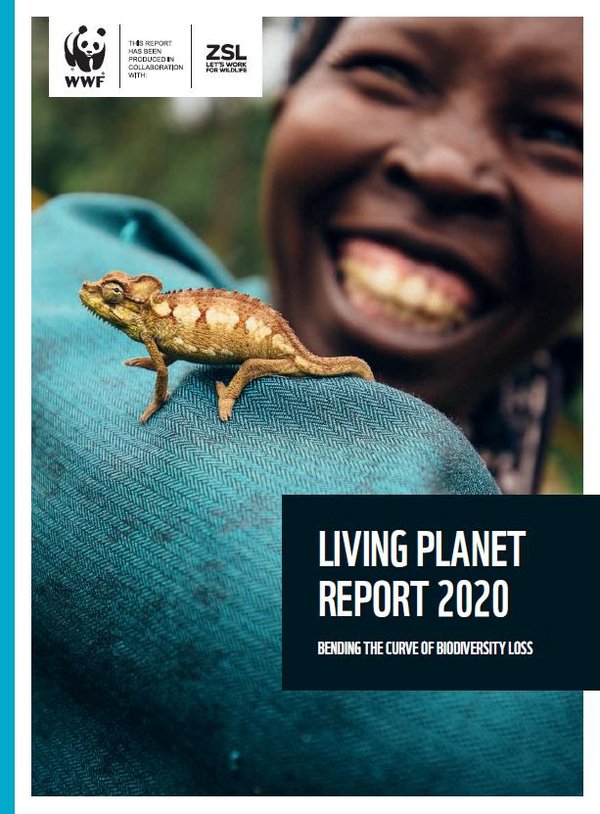- Share this article
- Subscribe to our newsletter
Living Planet Report 2020
Global populations of mammals, birds, amphibians, reptiles and fish have suffered an average two-thirds decline in less than half a century due in large part to the very same environmental destruction which is contributing to the emergence of zoonotic diseases such as COVID-19, according to WWF’s Living Planet Report 2020, released in September 2020.
The Living Planet Index (LPI), provided by the Zoological Society of London (ZSL), shows that factors believed to increase the planet’s vulnerability to pandemics - including land-use change and the use and trade of wildlife - were also some of the drivers behind the 68 per cent average decline in global vertebrate species populations between 1970 and 2016.
Without further efforts global biodiversity will continue to decline
The Living Planet Report 2020 presents a comprehensive overview of the state of our natural world through the LPI, which tracks trends in global wildlife abundance, and contributions from more than 125 experts from around the world. It shows that the main cause of the dramatic decline in species populations on land observed in the LPI is habitat loss and degradation, including deforestation, driven by how we as humanity produce food.
The LPI, which tracked almost 21,000 populations of more than 4,000 vertebrate species between 1970 and 2016, also shows that wildlife populations found in freshwater habitats have suffered a decline of 84 per cent - the starkest average population decline in any biome, equivalent to 4 per cent per year since 1970.
Changes in the food system are needed
The report also includes pioneering modelling which shows that without further efforts to counteract habitat loss and degradation, global biodiversity will continue to decline. Based on a paper, ‘Bending the curve of terrestrial biodiversity needs an integrated strategy,’ co-authored by WWF and more than 40 NGOs and academic institutions and published in Nature, the modelling makes clear that stabilising and reversing the loss of nature caused by humans’ destruction of natural habitats will only be possible if bolder, more ambitious conservation efforts are embraced and transformational changes made to the way we produce and consume food. Changes needed include making food production and trade more efficient and ecologically sustainable, reducing waste, and favouring healthier and more environmentally-friendly diets.
The research shows that implementing these measures together rather than in isolation will allow the world to more rapidly alleviate pressures on wildlife habitats, thereby reversing biodiversity trends from habitat loss decades earlier than strategies that allow habitat losses and then attempt to reverse them later on. The modelling also indicates that if the world carries on with “business as usual”, rates of biodiversity loss seen since 1970 will continue over the coming years.
(WWF/ile)
Visit the Living Planet Report website





Add a comment
Be the First to Comment